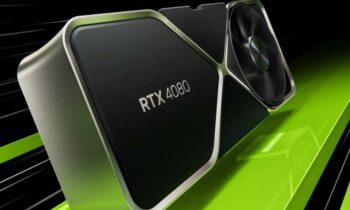Google is attempting to lower the cost of cloud computing by utilizing a specially designed Arm-based server chip. The company announced Tuesday at its Cloud Next conference in Las Vegas that the new CPU will ship later in 2024.
Google is catching up to competitors like Amazon and Microsoft, who have been using a similar tactic for years, with the new Arm-based technology. In the rapidly expanding cloud infrastructure industry, where businesses rent out resources in distant data centers and pay according to utilization, the digital titans are engaged in intense competition.
Although advertising still accounts for three-quarters of Alphabet’s revenue, cloud computing is expanding at a quicker rate and already makes for nearly 11% of total revenue. The corporate productivity applications area is profitable as well. According to projections from Gartner, Google possessed 7.5% of the cloud infrastructure market in 2022, while Amazon and Microsoft combined held about 62%.
In 2021, Arm CPUs were unveiled by Alibaba, and in November, Microsoft followed suit.
Google is not entirely new to Arm; in 2022, it began offering virtual machines (VMs) that were powered by Ampere, an Oracle-backed firm, and its Arm-based CPUs.
Because of economic concerns, enterprises looking to cut back on cloud computing expenditures have found it prudent to port software to Arm processors. Arm Holdings cited Amazon’s assertion that Graviton may provide up to 40% better price performance than comparable server instances, such as the popular “x86” model utilized by AMD and Intel CPUs, in its filing to go public last year.
BigTable and Spanner databases, the BigQuery data analytics tool, and YouTube advertising have all been operated internally by Google on Arm-based server systems. When the Axion cloud-based Arm instances become available, the company will progressively migrate them over, according to a spokeswoman.
According to the spokesman, Axion will be adopted by Datadog and Elastic in addition to OpenX and Snap.
For some workloads, a wider use of chips based on Arm’s architecture could result in lower carbon emissions. According to Google Cloud Chief Thomas Kurian, virtualized portions of real servers using Axion chips have a 60% higher energy efficiency than similar VMs built on the x86 architecture. Compared to x86 chips, which are frequently found in PCs, Arm chips, which are popular in smartphones, offer a shorter set of instructions.
Applications can also be accelerated by the chips.
According to Google, Axion performs 50% better than equivalent VMs based on x86 and 30% better than the fastest Arm-based general-purpose virtual machines in the cloud.
Dekate stated, “I think it completes their portfolio,”


